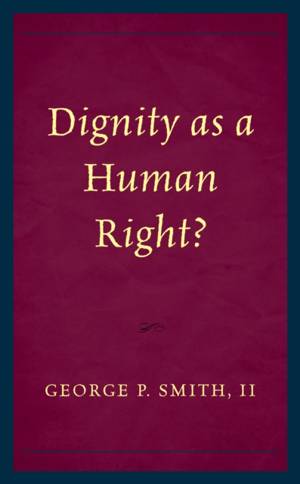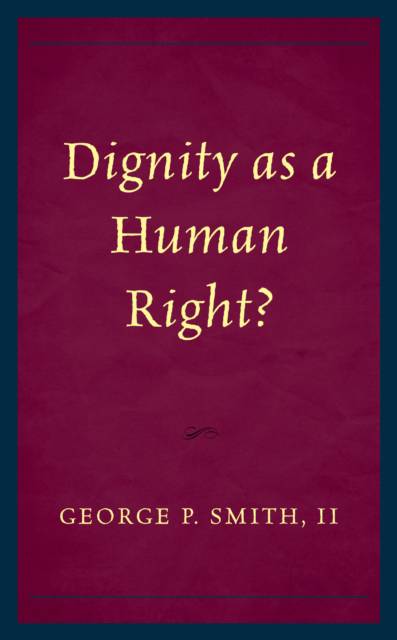
- Afhalen na 1 uur in een winkel met voorraad
- Gratis thuislevering in België vanaf € 30
- Ruim aanbod met 7 miljoen producten
- Afhalen na 1 uur in een winkel met voorraad
- Gratis thuislevering in België vanaf € 30
- Ruim aanbod met 7 miljoen producten
Zoeken
Omschrijving
Dignity is seen, commonly, as an ethical obligation owed to human persons. The dimensions of this obligation are subject to wide discussion and defy universal agreement. Dignity is seen, commonly, as an ethical obligation owed to human persons. Dignity as a Human Right? examines dignity within the prism of death, and more particularly, its humane and dignified management. Although there is no domestic or international right to die with dignity, within the right to life should, arguably, be a right to dignity and self-determination especially at its end-stage; for, a powerful interface exists between the right to human dignity and the very right to life, to love and humanity as well as compassion at its conclusion. Legislative efforts--nationally and internationally--have begun to recognize a right to die with dignity when a condition of medical futility exists. There are presently five states and the District of Columbia, together with a judicial interpretation from the Montana Supreme Court, which recognize death assistance for the terminally ill. Internationally, Canada, Belgium, the Netherlands, and Switzerland are seen as leaders in this recognition. The United Nations has played a significant role in framing end-of-life decision making within the ambit of human rights protection. The UN Charter states unequivocally that the dignity and worth of the human person must be protected and safeguarded. Similarly, among other instruments, the Universal Declaration on Human Rights acknowledges that all human beings are born free and equal in dignity and rights.
Specificaties
Betrokkenen
- Auteur(s):
- Uitgeverij:
Inhoud
- Aantal bladzijden:
- 188
- Taal:
- Engels
Eigenschappen
- Productcode (EAN):
- 9781498584210
- Verschijningsdatum:
- 13/08/2020
- Uitvoering:
- Paperback
- Formaat:
- Trade paperback (VS)
- Afmetingen:
- 152 mm x 229 mm
- Gewicht:
- 267 g

Alleen bij Standaard Boekhandel
+ 166 punten op je klantenkaart van Standaard Boekhandel
Beoordelingen
We publiceren alleen reviews die voldoen aan de voorwaarden voor reviews. Bekijk onze voorwaarden voor reviews.







